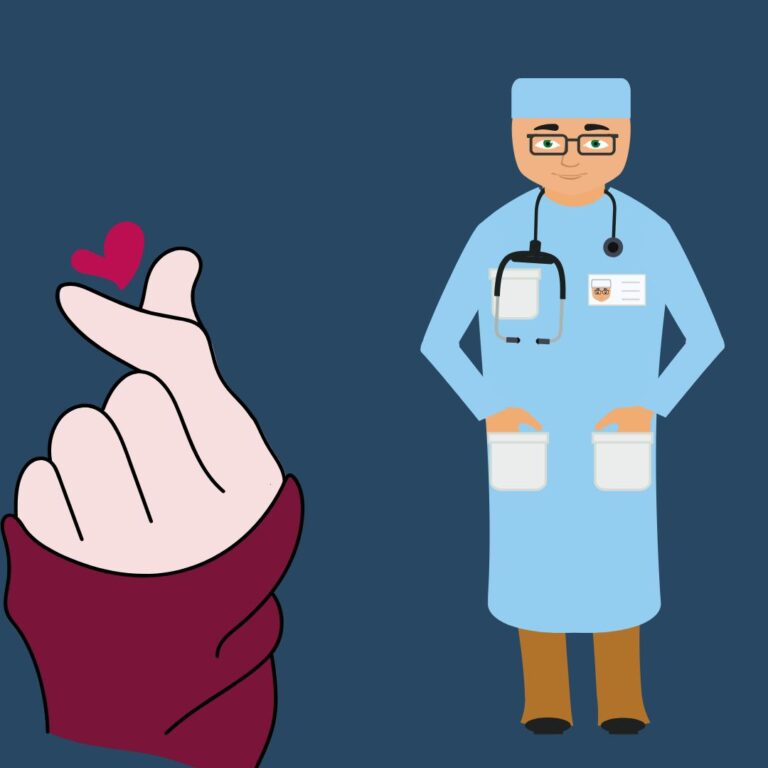When Should Men See a Doctor? The Key Signs You Should Never Ignore
Men’s health is often brushed aside until something becomes too noticeable to ignore. But knowing when to seek medical help can make a big difference.
Whether it’s a small symptom that worries you or something that’s been lingering for a while, it’s better to be safe than sorry. Let’s walk through some signs and situations where it’s essential to see a doctor, and why regular checkups should be part of every man’s health routine.
Common Health Issues in Men That Require Medical Attention
Men often experience specific health challenges that, if caught early, can be treated more effectively. Ignoring symptoms may only make matters worse, so don’t hesitate to take action when something feels off.
Heart Health Concerns
If you’re feeling chest pain or tightness, or if you experience shortness of breath that doesn’t seem normal, don’t wait for it to pass. These could be signs of heart disease or other serious conditions. High blood pressure is a silent danger, and regular checkups can help keep track of your heart health.
Diabetes and Its Symptoms
Men, especially those with a family history, should watch out for signs like increased thirst, frequent urination, or extreme fatigue. These could be early signs of diabetes. A simple blood test can determine if you’re at risk, and managing it early can prevent a lot of complications down the line.
Prostate and Urinary Problems
For many men, especially after the age of 50, prostate issues become a concern. Symptoms like frequent urination, blood in urine, or pain during urination could be indicative of something serious, including prostate cancer. Early detection through regular screenings can save lives.
The Importance of Regular Checkups for Men’s Health
A Simple Checkup Could Save Your Life
You might feel fine, but regular checkups allow doctors to spot health risks you might not even be aware of. Even something as simple as a routine cholesterol test can give you insights into your future health. Early screening for conditions like high blood pressure, high cholesterol, or even some cancers can give you a head start in preventing long-term health issues.
Catch Problems Before They Escalate
Sometimes, the most dangerous conditions develop without noticeable symptoms until it’s too late. Regular visits to your doctor can keep track of potential risks, helping to prevent small issues from turning into major health problems. This includes screening for conditions like colon cancer, diabetes, and kidney disease.
When Should You See a Doctor? Key Warning Signs to Watch For
You know your body better than anyone, so trust your instincts. If you feel something is wrong, don’t wait for things to get worse. Here are a few signs that mean it’s time to seek medical attention.
Unexpected Pain or Discomfort
Pain is your body’s way of telling you something is wrong. Whether it’s chest pain, back pain, or something else that feels out of the ordinary, it’s better to get it checked out. Sudden, sharp pain—especially in the chest or abdomen—should always be treated as an emergency.
Fatigue and Unexplained Weight Loss
If you’re losing weight without trying or feeling excessively tired all the time, these could be signs of serious conditions like thyroid problems or even cancer. If this continues for more than a few weeks, it’s time to talk to your doctor.
Specialists to Visit for Specific Health Issues
Heart Health: Cardiologist
If you’re experiencing any symptoms related to your heart, like irregular heartbeat, chest pain, or shortness of breath, it’s best to consult with a cardiologist. They can run the necessary tests to determine if there’s an underlying issue.
Prostate Health: Urologist
If you’re experiencing urinary problems, or if you’re over 50 and haven’t had a prostate screening, a visit to a urologist is a must. Prostate health is something that becomes more important with age.
When in Doubt, Schedule a Checkup
It’s always better to err on the side of caution. A simple checkup can be a great way to catch any health issues early, making it much easier to treat and manage. Don’t ignore those little warning signs—your health deserves attention.
Summary of Key Health Checkups and Symptoms
Here’s a quick reference to some key symptoms and when you should see a doctor:
| Health Issue | Symptoms to Watch For | Specialist to Visit |
|---|---|---|
| Heart Health | Chest pain, shortness of breath, dizziness | Cardiologist |
| Diabetes | Increased thirst, frequent urination, fatigue | General Practitioner |
| Prostate Problems | Painful urination, blood in urine, frequent urge | Urologist |
| Weight Loss/Fatigue | Unexplained weight loss, extreme tiredness | General Practitioner |
FAQs About Men’s Health: When to See a Doctor
Should men visit a doctor for routine checkups even if they feel fine?
Yes! Regular checkups can help detect early signs of health issues even if you feel perfectly fine. It’s a good way to stay ahead of any potential problems.
What are the common signs of heart problems in men?
Common signs include chest pain, tightness in the chest, shortness of breath, or unexplained dizziness. If any of these symptoms occur, seek medical attention immediately.
How often should men get a prostate checkup?
Men over the age of 50 should talk to their doctor about prostate screenings. If you have a family history of prostate cancer, it may be necessary to start earlier.
Is fatigue always a sign of a serious health condition?
Not always, but if fatigue is sudden, unexplained, and persists for an extended period, it could be a sign of underlying health issues like thyroid problems or even heart disease.
Content Author: Kamrul



